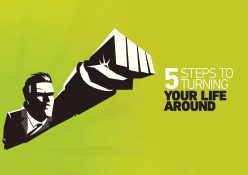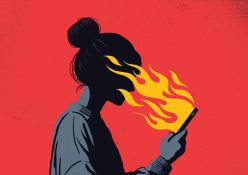Utter exhaustion and lack of energy can have many causes. But did you think that it could be your hormones out of wack?
What’s the difference between tiredness and fatigue? Think of a battery that can be either recharged or stay flat when empty. When you’re tired, a good night’s sleep can fully replenish your body’s battery. But when you’re fatigued, no amount of sleep can recharge that run-down battery. You’re constantly exhausted, have low energy and feel like you need to nap to get through the day. Sound like you? Don’t panic!
Why so tired?
Most people experience fatigue at some point in their lives. Roughly 20 to 30% of people complain to their doctor about fatigue as a serious problem impacting their life, with more women affected than men. Fatigue can be lifestyle-related, like when you’re overworked or stressed, don’t get enough exercise, eat poorly or drink too much alcohol. However, it can also be linked to various medical conditions and hormone imbalances, so getting to the root of it may require some detective work.
“Fatigue is most often related to anaemia, depression, obstructive sleep apnoea or another chronic illness,” says Dr William Toet, an endocrinologist in Cape Town. “In my clinical practice, it’s been the exception rather than the rule to find a hormonal imbalance as a cause of fatigue.” But for those who have it, a diagnosis can be life-changing. “If you have fatigue for three months without any clear explanation, discuss further tests with your doctor,” he advises.
The hormone connection
“Your hormone balance is very important for optimal metabolism and cellular functions,” says Dr Toet. However, when a patient is concerned about being very fatigued early on, there are often no clear physical signs of having too much or too little of a hormone.
A simple blood test can provide clarity – thyroid dysfunction, for example, is one of the most common hormone-related causes of fatigue. A low level of TSH (thyroid stimulating hormone) in your blood may indicate an underactive thyroid, which can result in lack of energy, excessive sleepiness and fatigue. Hypothyroidism, an underactive thyroid, affects 10% of people, and at least five times more women than men.
In contrast, an overactive thyroid or hyperthyroidism has a similar prevalence, but these patients usually have many symptoms, not fatigue alone, explains Dr Toet.
A very low level of the stress hormone cortisol, which is produced by your adrenal glands and can aid in limiting inflammation and regulating your sleep/wake cycle, can be an indication of Addison’s disease, an auto-immune condition also known as adrenal insufficiency or hypoadrenalism. When there are insufficient amounts of cortisol in the body, it causes overwhelming exhaustion and lack of energy. Dr Toet says that Addison’s only affects one in 150 000 people, but is an illness requiring chronic medication treatment to increase the cortisol.
Dwindling oestrogen can be a common trigger of fatigue in women. Generally between the ages of 45 and 55, the ovaries stop producing the female sex hormone oestrogen, causing menopause symptoms that may include exhaustion, lethargy, insomnia and mood swings.
Since sleep isn’t necessarily going to alleviate your fatigue, it’s essential to try and balance out your hormone levels through lifestyle changes or medication. This can include increasing your physical activity (through walking, for example), a balanced diet, staying hydrated, limiting caffeine and alcohol, and reducing stress.
“In instances of hormone deficiency, one would generally try to replace the low hormone level, such as taking a daily levothyroxine tablet for hypothyroidism,” says Dr Toet. There’s no one-size-fits-all remedy for hormone-related fatigue, so work with your doctor to find the solution that’s best for your unique situation.
Words by: Silke Colquhoun
Photo: Gallo/Getty Images







